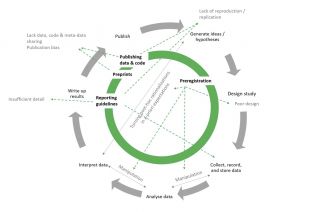
www.buildingsandcities.org/insights/news/built-environment-education.html
VIRTUAL EVENTS: Can Built Environment Education Deliver?

Join us for the launch of the B&C special issue "Education & Training: Mainstreaming Zero Carbon"
Two virtual events will discuss aspects of the special issue and what can be done to accelerate the transformations needed in built environment education. What are some key barriers and opportunities?
Key questions for discussion are likely to include:
• Who should take the lead on creating this change?
• How should professional institutions plan to reframe its higher education training?
• What kinds of changes are needed to the built environment curricula?
• What is your organisation's specific plan for doing so?
The climate emergency requires that the built environment will have to be zero carbon. All new buildings must be zero carbon by 2025 and the existing building stock will require significant retrofitting to be carbon neutral by 2050. A whole-life interdisciplinary approach is essential, which will require mainstreaming decarbonisation skills in all the built environment professions.
Education and training are key for ensuring the professions can achieve this. How will the current higher education curricula adequately meet the challenge and what can be done to positively plan for the future? In November 2020, Buildings & Cities (B&C) published a special issue Education and Training: Mainstreaming Zero Carbon, guest edited by Fionn Stevenson and Alison Kwok. All papers are free to access.
The special issue raised three challenges:
• How can education and training be rapidly changed to ensure the
creation of zero-carbon built environments?
• How can this transition be implemented successfully?
• What positive examples and models can be drawn upon or
adapted?
Two regional virtual events (respectively with The Edge and Carbon Leadership Forum) will use the themes and challenges from the special issue to discuss a rapid change agenda for built environment education. Each will be seeking solutions that are top-down as well as bottom- up and look for a new range of interdependent processes to occur across:
• Central government
• Accreditation bodies and Professional institutes
• Universities
• NGOs
Event 1: Europe & Africa - co-partnered with The Edge
Monday 1st February 2021, 17.00 - 18.30 Greenwich Mean Time


To attend this event please register in advance at: https://www.eventbrite.co.uk/e/zero-carbon-can-uk-built-environment-education-deliver-tickets-135982089089
Chair:Bill Gething (University of the West of England)
Introduction:Fionn Stevenson (University of Sheffield) and Alison Kwok (University of Oregon)
Speakers:Gavin Killip (University of Oxford)
Katy Janda (University College London)
Malini Srivastava (University of Minnesota)
David Gloster (Director of Education, Royal Institute of British Architects)
Lynne Jack (Heriot Watt University & Past President, Chartered Institution of Building Services Engineers)
Q&A
Event 2: North & South America, Asia and Pacific - co-partnered with the Carbon Leadership Forum
Monday 8 February 2021, 9.00-10.00 Pacific Standard Time (PST)


To attend this event please register in advance at: https://washington.zoom.us/meeting/register/tJIpdOmurD0sGdCUb1aZspg9CEVadmCN6R1K
Anthony Hickling (Carbon Leadership Forum)
Introduction:Fionn Stevenson (University of Sheffield) and Alison Kwok (University of Oregon)
Speakers:Gavin Killip (University of Oxford)
Katy Janda (University College London)
Malini Srivastava (University of Minnesota)
Marsha Maytum (Practitioner, Educator, 2019 chair of AIA COTE - American Institute of Architects, Committee on the Environment)
Steph Carlisle (Carbon Leadership Forum and University of Pennsylvania)
Q&A
Latest Peer-Reviewed Journal Content
Energy sufficiency, space temperature and public policy
J Morley
Living labs: a systematic review of success parameters and outcomes
J M Müller
Towards a universal framework for heat pump monitoring at scale
J Crawley, L Domoney, A O’Donovan, J Wingfield, C Dinu, O Kinnane, P O’Sullivan
Living knowledge labs: creating community and inclusive nature-based solutions
J L Fernández-Pacheco Sáez, I Rasskin-Gutman, N Martín-Bermúdez, A Pérez-Del-Campo
A living lab approach to co-designing climate adaptation strategies
M K Barati & S Bankaru-Swamy
Mediation roles and ecologies within resilience-focused urban living labs
N Antaki, D Petrescu, M Schalk, E Brandao, D Calciu & V Marin
Negotiating expertise in Nepal’s post-earthquake disaster reconstruction
K Rankin, M Suji, B Pandey, J Baniya, D V Hirslund, B Limbu, N Rawal & S Shneiderman
Designing for pro-environmental behaviour change: the aspiration–reality gap
J Simpson & J Uttley
Lifetimes of demolished buildings in US and European cities
J Berglund-Brown, I Dobie, J Hewitt, C De Wolf & J Ochsendorf
Expanding the framework of urban living labs using grassroots methods
T Ahmed, I Delsante & L Migliavacca
Youth engagement in urban living labs: tools, methods and pedagogies
N Charalambous, C Panayi, C Mady, T Augustinčić & D Berc
Co-creating urban transformation: a stakeholder analysis for Germany’s heat transition
P Heger, C Bieber, M Hendawy & A Shooshtari
Placemaking living lab: creating resilient social and spatial infrastructures
M Dodd, N Madabhushi & R Lees
Church pipe organs: historical tuning records as indoor environmental evidence
B Bingley, A Knight & Y Xing
A framework for 1.5°C-aligned GHG budgets in architecture
G Betti, I Spaar, D Bachmann, A Jerosch-Herold, E Kühner, R Yang, K Avhad & S Sinning
Net zero retrofit of the building stock [editorial]
D Godoy-Shimizu & P Steadman
Co-learning in living labs: nurturing civic agency and resilience
A Belfield
The importance of multi-roles and code-switching in living labs
H Noller & A Tarik
Researchers’ shifting roles in living labs for knowledge co-production
C-C Dobre & G Faldi
Increasing civic resilience in urban living labs: city authorities’ roles
E Alatalo, M Laine & M Kyrönviita
Co-curation as civic practice in community engagement
Z Li, M Sunikka-Blank, R Purohit & F Samuel
Preserving buildings: emission reductions from circular economy strategies in Austria
N Alaux, V Kulmer, J Vogel & A Passer
Urban living labs: relationality between institutions and local circularity
P Palo, M Adelfio, J Lundin & E Brandão
Living labs: epistemic modelling, temporariness and land value
J Clossick, T Khonsari & U Steven
Co-creating interventions to prevent mosquito-borne disease transmission in hospitals
O Sloan Wood, E Lupenza, D M Agnello, J B Knudsen, M Msellem, K L Schiøler & F Saleh
Circularity at the neighbourhood scale: co-creative living lab lessons
J Honsa, A Versele, T Van de Kerckhove & C Piccardo
Positive energy districts and energy communities: how living labs create value
E Malakhatka, O Shafqat, A Sandoff & L Thuvander
Built environment governance and professionalism: the end of laissez-faire (again)
S Foxell
Co-creating justice in housing energy transitions through energy living labs
D Ricci, C Leiwakabessy, S van Wieringen, P de Koning & T Konstantinou
HVAC characterisation of existing Canadian buildings for decarbonisation retrofit identification
J Adebisi & J J McArthur
Simulation and the building performance gap [editorial]
M Donn
Developing criteria for effective building-sector commitments in nationally determined contributions
P Graham, K McFarlane & M Taheri
Join Our Community

The most important part of any journal is our people – readers, authors, reviewers, editorial board members and editors. You are cordially invited to join our community by joining our mailing list. We send out occasional emails about the journal – calls for papers, special issues, events and more.
We will not share your email with third parties. Read more



Latest Commentaries
COP30 Report
Matti Kuittinen (Aalto University) reflects on his experience of attending the 2025 UN Conference of the Parties in Belém, Brazil. The roadmaps and commitments failed to deliver the objectives of the 2025 Paris Agreement. However, 2 countries - Japan and Senegal - announced they are creating roadmaps to decarbonise their buildings. An international group of government ministers put housing on the agenda - specifying the need for reduced carbon and energy use along with affordability, quality and climate resilience.
Building-Related Research: New Context, New Challenges
Raymond J. Cole (University of British Columbia) reflects on the key challenges raised in the 34 commissioned essays for Buildings & Cities 5th anniversary. Not only are key research issues identified, but the consequences of changing contexts for conducting research and tailoring its influence on society are highlighted as key areas of action.